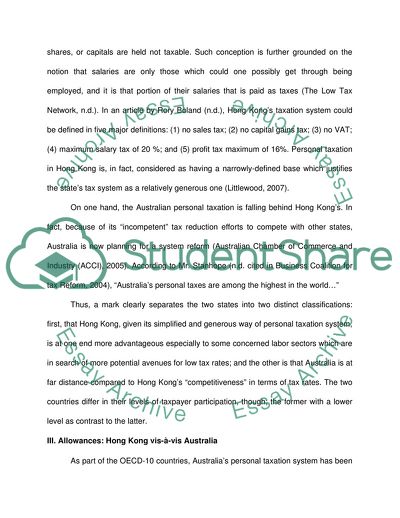Cite this document
(Personal Income Tax in Hong Kong Coursework Example | Topics and Well Written Essays - 2250 words, n.d.)
Personal Income Tax in Hong Kong Coursework Example | Topics and Well Written Essays - 2250 words. https://studentshare.org/finance-accounting/1733171-taxation
Personal Income Tax in Hong Kong Coursework Example | Topics and Well Written Essays - 2250 words. https://studentshare.org/finance-accounting/1733171-taxation
(Personal Income Tax in Hong Kong Coursework Example | Topics and Well Written Essays - 2250 Words)
Personal Income Tax in Hong Kong Coursework Example | Topics and Well Written Essays - 2250 Words. https://studentshare.org/finance-accounting/1733171-taxation.
Personal Income Tax in Hong Kong Coursework Example | Topics and Well Written Essays - 2250 Words. https://studentshare.org/finance-accounting/1733171-taxation.
“Personal Income Tax in Hong Kong Coursework Example | Topics and Well Written Essays - 2250 Words”. https://studentshare.org/finance-accounting/1733171-taxation.


